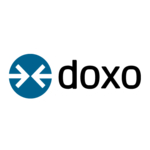D+H adopts Ripple distributed ledger to reduce costs
Financial technology company D+H is to implement distributed ledger technology from Ripple into its global payment services hub Global Payplus, in a deal the firm says will reduce costs and improve liquidity.
Under the agreement, financial institutions that use Global Payplus, such as global banks, will link to a secure distributed ledger accessible with permission to connect interbank networks, move funds domestically and across borders in real time and access cheaper liquidity through a network of market makers.
“Distributed ledgers have the potential to radically transform the payment process,” said Gene Neyer, head of product management, global transaction banking solutions, D+H. “They remove the frictional costs and reduce the complexities of using multiple intermediaries; reduce or eliminate the reconciliation processes; and transform and enrich existing business processes by providing alternative sources of liquidity.”
Patrick Griffin, executive vice-president of business development at Ripple, said the partnership also represents a shift in Ripple’s own business, away from the conceptual side of development and towards commercial integration and deployment.
“Part of that shift required working with systems integrators that are already in relationships with banks,” he said. “We see partnerships with firms like D+H as critical to delivering cross-currency settlement projects, lowering costs and increasing speed.”
Founded in 2012, Ripple has focused since then on developing the distributed ledger for financial services. A distributed ledger is a system of record that operates in near-real time and is designed to be accurate, reliable and virtually indestructible.
“The capabilities the banks are interested in are certainty of payment and visibility of payment, in real time, as well as settlement without risk,” added Griffin. “Looking forward to the future development of this technology, banks need total privacy of payment, more scalable solutions and the ability to have transactions denominated in any currency. This is not just about technology it’s about a solution, its an end to end, new possibility that was not available before.”
Last week, Ripple announced its Interledger Protocol, which is a free, open-source Web protocol for payments across payment systems. It is designed to provide a universal protocol for payments, to “connect the world’s ledgers”, according to the company.
“The Interledger Protocol is designed to allow privacy and the ability to denominate transaction fees in any currency,” added Griffin. “The privacy bit is important. Banks were never happy in an open ledger. Now transactions are completely private. This adds unlimited scale to the technology.”









































